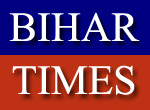|
30/07/2014
Not backward castes, but their leaders who are facing crisis
|
|
| Now that the leaders of the two important ‘pro-Mandal parties’––the Janata Dal (United) and Rashtriya Janata Dal––have joined hands will the backward castes really come together and vote unitedly in the by-election to the 10 Assembly seats to be held on August 21? And will this unison continue till the next year Assembly election? This question is being raised as the backward castes usually unite under one umbrella only when they face some big threat or challenge from the upper castes. Otherwise the alliance among the leaders fail to yield result. Interestingly, the other party of this grand alliance is a non-Mandal outfit, the Congress. The latter has been compelled by the political circumstances to have a tie-up with these two parties. First, RJD chief Lalu Prasad and then JD(U) leader and former CM, Nitish Kumar, were reminded of the Mandal only after they realized that they have lost their support base to the BJP. The saffron party, was till recently relying on the upper caste and Bania votes. But after the advent of Narendra Modi it managed to get a large chunk of backward caste votes. The Schedule Castes votes too shifted in a substantial amount to this party. The backward castes have come together in Bihar––and even elsewhere––in the past. The Yadavs, Koeris and Kurmis formed Triveni Sangh much before independence. Then when Karpoori Thakur implemented reservation in the state a few months after he became the chief minister in 1977 there was a bitter struggle in Bihar on the caste line as the upper castes strongly opposed it. The campuses were paralyzed for months in 1977-78. Then the biggest polarization in the recent memory came during the early 1990s after the then V P Singh government implemented the Mandal Commission report. It had a nation-wide impact with Bihari students studying outside the state taking lead in the movement for and against quota. So normally the pro- and anti-Mandal forces unite when they get an issue––especially reservation. The political parties only encash them. This time though the Bade and Chote Bhai have come together it is to be seen whether their votebanks unite or not. Or will the alliance be able to bring back the backward caste votes which drifted towards the BJP recently. At present the OBCs and EBCs are apparently not showing too much enthusiasm. But then these are early days and much depends on how the upper castes react. The upper caste backlash––if any––will certainly have its impact on them. So much depends how maturedly the upper caste takes this challenge posed by the coming together of two Bhais after exactly two decades of estrangement. The truth is that reservation has always been an emotive issue. It is still debateable whether it really helped the backward castes in education or job or not as the Narasimha Rao government played a master stroke in 1991. It introduced Liberalization, Privatization and Globalization (LPG). Thus the upper castes and trading communities managed to re-consolidate much of its lost ground. But Mandal has certainly given the backward castes a big political platform. It has helped several backward caste leaders grow––be it Lalu and Nitish in Bihar or Mulayam Singh Yadav in UP. Not to miss Narendra Modi nationally. However, unlike in the late 1970s and early 1990s backward castes are not facing any big challenge from the upper castes over reservation or any issue. Instead it is their leaders, who are facing a crisis and fighting for survival.
|
|


